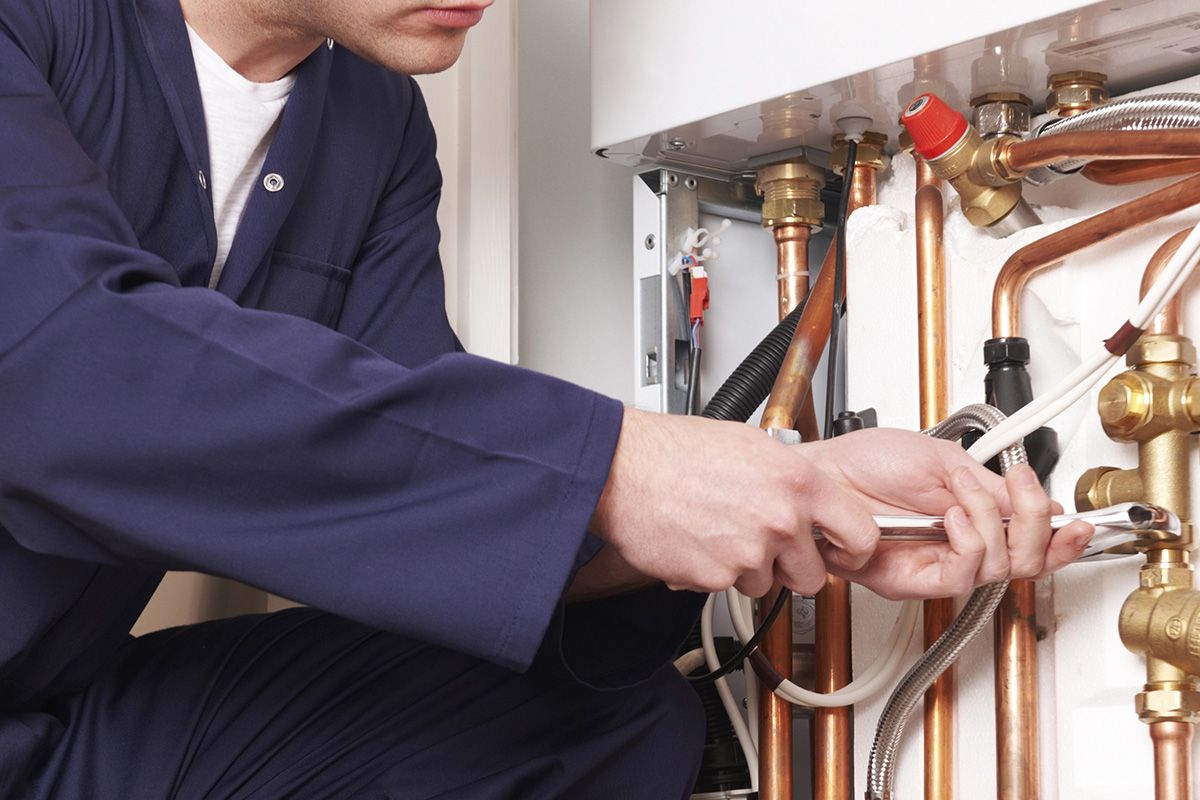Why Gas Safety Week Matters: What Every Homeowner Needs to Know
As Gas Safety Week comes round, there’s no better time for UK homeowners to think seriously about their home gas safety check. Gas is essential—it heats our homes, powers cooking, and provides hot water—but when things go wrong, the consequences can be catastrophic. This article explores the problems homeowners face with gas safety, both technical and human, and how you can avoid terrible outcomes. Infinity Home Services, serving North Essex and South Suffolk, are ready to help make sure your home is truly safe.

The scale of the problem: statistics you should know
-
Around 50 people die each year in the UK from unintentional carbon monoxide (CO) poisoning; additionally, about 4,000 people visit A&E due to CO exposure.
-
One in five UK homeowners has never had a gas safety check carried out in their home.
-
Accidental deaths from carbon monoxide poisoning are down somewhat — around -7% year on year, and about 46% lower than a decade ago. But other gas-and-vapour-related deaths in homes still occur, and many appliances remain unsafe.
-
Some investigations show that when Gas Safe-registered engineers inspect boilers installed by unqualified fitters, 79% of those boilers are found to be unsafe or classified as “immediately dangerous.”
These statistics make it clear that while overall numbers have improved, serious risks remain—especially where checks, maintenance, or qualifications are lacking.
Types of gas safety problems: technical and human
Technical problems
-
Poor installation / unqualified technicians: Improperly fitted boilers, gas fires or cookers, badly sealed joints or flues can all lead to leaks of natural gas or CO. As noted above, a large fraction of boilers installed by those without Gas Safe registration are found to be unsafe.
-
Inadequate maintenance: Even well-installed appliances degrade with age—seals wear, flues block, burners become misaligned. Without regular servicing these issues often remain unseen until danger arises.
-
Faulty or blocked ventilation / flues: Without correct air supply or exhaust, combustion gases cannot vent properly, leading to a buildup of carbon monoxide or other dangerous gases.
-
Leaks, corrosion or ageing pipework: Gas pipes can corrode; joints can fail; materials degrade. These pose risk both of fire / explosion and poisoning.
Human (behavioural / awareness) problems
-
Lack of awareness or under-estimating risk: Many homeowners do not realise when symptoms like headaches, dizziness, nausea might be due to CO. Some believe they can spot danger easily, or think that “it won’t happen to me.”
-
Ignoring small warning signs: Yellow or orange burner flames, soot or stains on appliances, smells of gas (often described like rotten eggs) are meaningful signs. But homeowners may delay or dismiss them, perhaps due to cost, inconvenience or simply not knowing what they mean.
-
DIY and “unqualified fixes”: For cost saving or convenience, people sometimes attempt to fix, install or adjust gas appliances without professional, Gas Safe registered help. These fixes might appear to work but can leave hidden dangers.
-
Neglecting carbon monoxide alarms: Because CO is colourless and odourless, alarm devices are essential. Yet many homes either do not have alarms, or do not test/replace them properly.
-
Financial barriers: Particularly since energy and living costs have risen, some homeowners might delay checks, servicing or replacing unsafe appliances due to cost. This increases risk.
How homeowners can reduce risk
-
Always hire a Gas Safe registered engineer for installation, servicing or repair work. Check their ID, credentials, and ensure they show Gas Safe registration.
-
Have a proper home gas safety check at least annually. This should include all gas-fired appliances, flues, pipework and ventilation.
-
Install carbon monoxide (CO) alarms in rooms with boilers or gas fires; test them monthly and replace batteries or the device as needed.
-
Be alert to warning signs: unusual smells, discoloured flames, soot or staining, condensation inside glass doors, increased gas bills without obvious reason.
-
Ensure adequate ventilation in rooms where gas appliances are used. Even during cold weather, letting in fresh air prevents gas accumulation.
-
Plan ahead to replace aging appliances rather than waiting for breakdowns. Older equipment tends to be more prone to faults and less efficient.
How Infinity Home Services can help
Based in North Essex and South Suffolk, Infinity Home Services offers professional gas safety services tailored for homeowners. We can conduct full gas safety inspections, service boilers, check all pipework and ventilation, install or test carbon monoxide alarms, and ensure that all work is carried out by Gas Safe registered engineers. By working with us, homeowners can gain peace of mind that their property is safe from gas-related dangers.
Contact Us
Gas Safety Week is about more than just awareness—it’s about action. As a homeowner, your safety depends on regular checks, proper maintenance, professional installation, and responsiveness to warning signs. The statistics show risks remain significant, particularly where gas appliances are neglected or maintained by unqualified people. If you live in North Essex or South Suffolk, Infinity Home Services can help ensure all aspects of your gas system are safe and compliant. Don’t wait until a warning sign becomes a disaster—when will you schedule your gas safety check? Simply complete the form below, or call us today on 0800 148 8088.